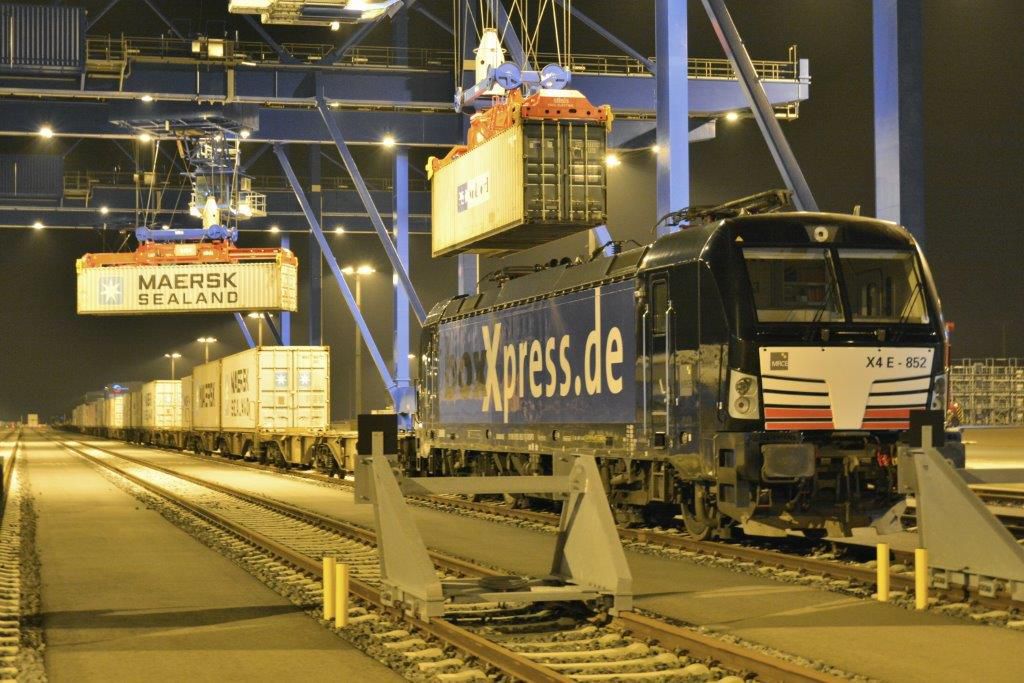The above signed associations welcome the agreement of 18 March between EU Transport Ministers and the European Commission to work closely to minimise traffic disruptions, especially for essential freight. For rail freight to be able to play a leading role in freight flows, the associations believe further measures need to be taken, both by the European Commission and national authorities.
Firstly, the above signed associations believe the agreement between the EU Transport Ministers and the European Commission is a positive progression from the Commission Guidelines for border management measures to protect health and ensure the availability of goods and essential services published on 16 March. For rail freight to be efficient, coordination of national responses is essential. The commitment of Transport Ministers to work together is therefore highly welcome.
Secondly, there are several critical success factors for international rail freight to play a leading role in connecting European economies and to be able to act as the backbone for securing the supply of raw materials, food and medical goods. The EU transport Ministers and Commission agreement, as well as the Guidelines for border management, are welcome, but need to be followed by concrete actions.
The above signed associations therefore urge the European Commission and national authorities to consider the following elements in their decision-making process so as to allow rail freight to contribute to the unprecedented logistical challenges faced by European companies and retailers:
- Rail Freight Corridors must become “green lanes” to guarantee European supply chains – Quantity and quality of infrastructure and terminal capacity on rail freight corridors must be kept open to meet potential needs of shippers and freight forwarders. Even if passenger services are reduced, capacity allocation bodies and traffic management centres must remain open for rail freight 24 hours a day.
- Allow cross border movements for systemic relevant staff - The Commission Guidelines for border management measures to protect health and ensure the availability of goods and essential services correctly identify that train drivers, wagon inspectors, maintenance workshops’ staff as well as the infrastructure managers staff involved in traffic management and capacity allocation should be allowed travel across internal and external borders so as to ensure continued freight flows. This measure should be thoroughly enforced by all Member States and extended to other systemic relevant staff from rail freight operations.
- Safeguard a minimum capacity at maintenance facilities – To ensure the free flow of goods on rail it is essential that Member States allow maintenance facilities and mobile team to remain open and running ensuring the availability of rolling stock, both locomotives and freight wagons. Without them a breakdown of the rail freight traffic is unavoidable. Maintenance workshops are of course aware of their responsibilities to protect people and staff while ensuring business continuity.
- Introduce flexibility in the regulatory framework to avoid traffic disruptions: Given the ongoing restrictions at national and international level, if we want rail freight to “keep on moving cross-border”, the Commission and Members States must discuss the possibility to delay the application of new legal provisions (ECM, noise) or the introduction of temporary derogations to legal requirements (deadlines for RID/ADR tank inspections) provided of course that the safety level in rail is not negatively affected. With limited workshop capacity and certification/approval bodies unable to perform their job, the trade-off between public interest and legal requirements need to be closed.
- Coordinated approach to capacity restrictions – The number of freight trains operating is expected to increase due to COVID-19 restrictions imposed by Member States within the country and at the borders. On top of this, downtimes on national networks may create unnecessary additional work for railway undertakings and infrastructure managers in rebooking train paths, especially if downtime of national networks does not happen in a coordinated manner. Any restrictions to national networks must only happen in consultation with railway undertakings and neighbouring infrastructure managers so as to reduce the need for excessive rebooking or creating unnecessary restrictions to international freight.
- Temporary Capacity Restrictions and Construction Works - Disturbances from temporary capacity restrictions should be minimized and planning of infrastructure works must not limit rail freight flows. Ongoing and already planned construction works must not be delayed or stopped due to COVID-19. Delaying ongoing works will not free up capacity. Their postponement would only lead to a future peak in capacity reductions.
- Economic Support for Continued Freight Flows - Even if there is still a strong demand for rail freight services, they are being produced at high extra costs. Support measures are needed to compensate for losses and to guarantee the continuity of services. These could include, but are not limited to:
o Temporary waiver or reduction of track access charges (via flat rate) and energy costs (lowering);
o Abolish fees for short-term train path cancelations and changes;
o Adopting incentive policies for rail freight transport to compensate irregular traffic;
o Allow tax exemption or extension of payment terms for logistics operators such as railway undertakings and terminals.
CEFIC - Cefic is a not-for-profit making organisation devoted to promoting a thriving European chemical industry that is broadly recognised to provide sustainable, safe, innovative and resource efficient solutions to foster prosperity, growth and investments in Europe and meet the challenges for future generations.
CLECAT - CLECAT represents the interest of thousands of companies in the Freight Forwarding, Logistics Services and Customs Services. Multinational, medium and smaller sized companies all fall within its Membership. Together these companies handle about 65% of all transport in Europe and the industry performs over 80% of all customs formalities in the EU.
ERFA – ERFA is the European Association representing European private and independent railway companies. ERFA members share a commitment to work towards a non-discriminatory, competitive and innovative Single European Railway area.
ESC - European Shippers’ Council represents the interests of more than 75.000 cargo owners in the European Union, both SMEs and large multinational companies. For all of them, transport is an indispensable link to their customers. Efficient and sustainable transport & logistics are, therefore, critical for the competitiveness of the European industry and the socio-economic welfare in Europe.
UIP – Founded in 1950, the UIP – International Union of Wagon Keepers, with its seat in Brussels, is the umbrella association of national associations from fourteen European countries, thus representing more than 200 freight wagon keepers and ECMs with more than 210’000 freight wagons, performing 50 % of the rail freight tonne-Kilometres throughout Europe. The UIP represents the members’ concerns at the international level. By means of research, lobbying and focused cooperation with all stakeholders and organisations interested in rail freight transportation, the UIP wants to secure on the long term the future of rail freight transport.
UIRR - Founded in 1970, the International Union for Road-Rail Combined Transport (UIRR) represents the interests of European road-rail Combined Transport Operators and Transhipment Terminal Managers. Road-Rail Combined Transport (CT) is a system of freight forwarding which is based on efficiently and economically inserting electric rail into long-distance (road) transport-chains through the use of intermodal loading units (ILU).



-min-1764237245.jpg)